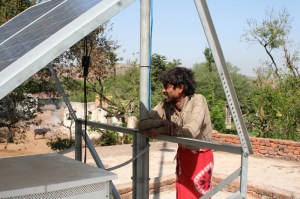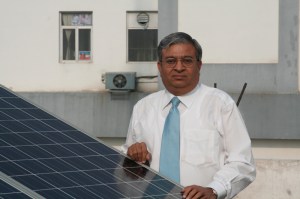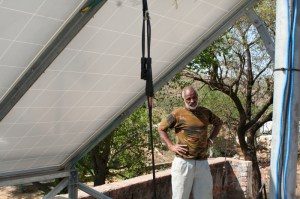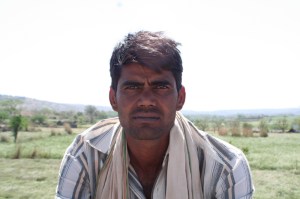 Last time I was in India I wrote about the amazing business model innovation that had allowed telecom operators to make money on a paltry $6 a month per average user. That compares to a desired average monthly payment of $50 or more in the U.S.
Last time I was in India I wrote about the amazing business model innovation that had allowed telecom operators to make money on a paltry $6 a month per average user. That compares to a desired average monthly payment of $50 or more in the U.S.
The results have been phenomenal—550 million people in India have phones, and it has transformed the poorer service economy by giving them an affordable way to be reached and arrange jobs. Just last month, nearly 20 million new mobile accounts were opened. That’s more than double the people than have high speed Internet in the entire country. Even in slums where people live on less than $2 a day, everyone has a phone. If “Slumdog Millionaire” was more accurate, Jamal wouldn’t have had to go on TV to find Latika. He could have just called her, or worst case, called a few friends until he found her number.
It’s unequivocally India’s most successful infrastructure achievement —despite some mounting concerns about the effects of all those towers dotting nearly any urban rooftop that can hold one. And a host of exciting applications are being built on top of this invisible thread that connects a disparate country with a vast terrain and even bigger gulfs in language, literacy, income, religion, language and living standards
But amazingly, when Rajiv Mehrotra (pictured below) looked at the existing telecom penetration in India, he saw failure. What about the people who can’t afford $6 a month or live too far to get service? Don’t they deserve to be connected as well? The result was VNL, a company that’s already gotten a good deal of press and acclaim for its dead-cheap, low-maintenance, Ikea-like easy-to-assemble, solar-powered base stations that extend existing mobile footprints into rural villages for a fraction of the price, allowing the remotest, poorest villages to have mobile phones in every household at drop-dead low prices. “We are the bottom of the bottom,” boasts Mehrotra, practically daring competitors to try to play his low-cost, super-durability game.
The World Economic Forum named it one of 26 Technology  Pioneers, and just last month VNL won the Mobile World Congress’s Green Mobile Award. Time called it a “Tech Pioneer that Will Change your Life” and Fast Company named it one of the world’s 50 Most Innovative Companies in the world.
Pioneers, and just last month VNL won the Mobile World Congress’s Green Mobile Award. Time called it a “Tech Pioneer that Will Change your Life” and Fast Company named it one of the world’s 50 Most Innovative Companies in the world.
I met with Mehrotra at the company’s headquarters in Gurgoan during my November trip to India. This time I wanted to see its technology live in villages and hear first hand what the impact had been. I traveled to a village that had now had phones for about seven months to see how the technology had changed their lives. Of the 500 families spread across this area, almost all of them had a phone—and most for the first time.
The majority of the people I spoke with said the first calls they made were to family members, and that the biggest impact was the ability to stay in touch with family, to know when there was an emergency and be able to respond quickly.
But there have been business effects too. One man (pictured here) has a  business operating several trucks traveling between this village and Delhi and before he’d have to ride on a bike between back-and-forth to coordinate them. Now he can sit at home and just call the drivers. He installed one of VNL’s small base stations on his roof, and he said it had increased his standing among his peers—he is frequently the one called on to settle disputes. And now they can just call him. Similarly wives will call husbands out in the fields when its time to come in and eat, rather than trudging out to get them, allowing them to focus on kids and the housework.
business operating several trucks traveling between this village and Delhi and before he’d have to ride on a bike between back-and-forth to coordinate them. Now he can sit at home and just call the drivers. He installed one of VNL’s small base stations on his roof, and he said it had increased his standing among his peers—he is frequently the one called on to settle disputes. And now they can just call him. Similarly wives will call husbands out in the fields when its time to come in and eat, rather than trudging out to get them, allowing them to focus on kids and the housework.
Another woman (pictured below) I spoke with was a widow with six  kids and 21 grandchildren. (So many, she actually had to ask someone else how many she had.) As grandkids clambered in and out of her lap, she explained that she gets pension checks from the government, but the delivery used to be spotty. Before her phone she had no recourse but to travel to Delhi to inquire about it. Not exactly something she relishes, having lived her whole life in this village and only been to the big city twice. Now she can call the office and gives them an earful. Not surprisingly, the checks have started to come more regularly.
kids and 21 grandchildren. (So many, she actually had to ask someone else how many she had.) As grandkids clambered in and out of her lap, she explained that she gets pension checks from the government, but the delivery used to be spotty. Before her phone she had no recourse but to travel to Delhi to inquire about it. Not exactly something she relishes, having lived her whole life in this village and only been to the big city twice. Now she can call the office and gives them an earful. Not surprisingly, the checks have started to come more regularly.
Another man (pictured to the right) told me he felt more connected to the rest of India as a result of having a phone. This village is surrounded  by mountains, and he said that he felt “imprisoned” and cut off, despite being just a few hours drive from Delhi. Now he has a renewed interest in politics and what’s happening in other villages and the country at large. This man had only had his phone for six months, but he expected it would change his life in ways he couldn’t articulate or imagine. “Since the day I got this, my life has already changed,” he said through an interpreter.
by mountains, and he said that he felt “imprisoned” and cut off, despite being just a few hours drive from Delhi. Now he has a renewed interest in politics and what’s happening in other villages and the country at large. This man had only had his phone for six months, but he expected it would change his life in ways he couldn’t articulate or imagine. “Since the day I got this, my life has already changed,” he said through an interpreter.
Indeed, Mehrotra says it’s already having a ripple effect on the politics of Rajasthan—the state between Pakistan and India where VNL did its first installations. Politicians come through and make promises and villagers demand their cell phone numbers and call to check up on whether those promises are kept. “They have to be accountable,” Mehrotra says. “They can’t wriggle out.”
These phones are not just a nice-to-have, they’ve quickly become a must have for these villages, deeply tied to the way they make money, participate in their government and retain closely important family relationships. And these ripple effects are only now beginning. Think of what the impact will be when there are better programs for marketing crops, saving money and even learning and game playing rolled out on these very basic phones. Life will always be different in a village or a city, but India can at least gain some basic common denominators between the two.
Mehrotra is a big believer in the Gandhian mantra: Change the villages and you change India. He’s a serial entrepreneur who has already built businesses rolling out satellite TV and landlines to rural areas, but he thinks this company will have a bigger impact than anything else he’s done and is the one with the real potential to go global. It bears noting that he’s invested all of his own money in the project—and it’s taken far more than he expected.
This is not a cheap venture—Mehrotra has invested more than $100 million in the last five years and is still investing more. But I’m not sure it could be built any other way. I don’t think there’s the venture capital appetite or risk profile in India to fund something like this and most of the mobile equipment companies Mehrotra talked to back when he started thinking about this insisted it couldn’t be done. Once he built it he’d take equipment and operator executives out to see it and they still couldn’t believe it. They were making calls to test the quality from different areas of the village trying to find pockets without a signal. “They were climbing on the antenna and shaking it like monkeys trying to break it and they couldn’t,” Mehrotra says.
From a business point of view, the operators love VNL because it cheaply expands their existing footprint. The equipment operators aren’t so sure. In theory, VNL isn’t competing with them because they’re not going into the cities. Now that VNL has proved this model works, could a larger established vendor steal the market? The best chance of that would likely come from a Chinese powerhouse like Huawei. That said, any vendor that builds such a low cost solution that’s too good will risk eroding his higher priced systems designed for urban areas. “They’ll say ‘Give it to me in the city too.’ ” Mehrotra says.
All these awards aside, this is the year for VNL to prove it’s really a viable business. And Mehrotra says there are some surprises in store. In terms of market, VNL is already rolling the technology out in other countries and in terms of product they’re not done with just simple mobile access. The countries are likely in Africa and perhaps Latin America, and my guess is the new functionality will entail turning on some kind of Internet access through the existing base stations. Expect much more on this newly minted international do-gooding darling in 2010.




























Comment